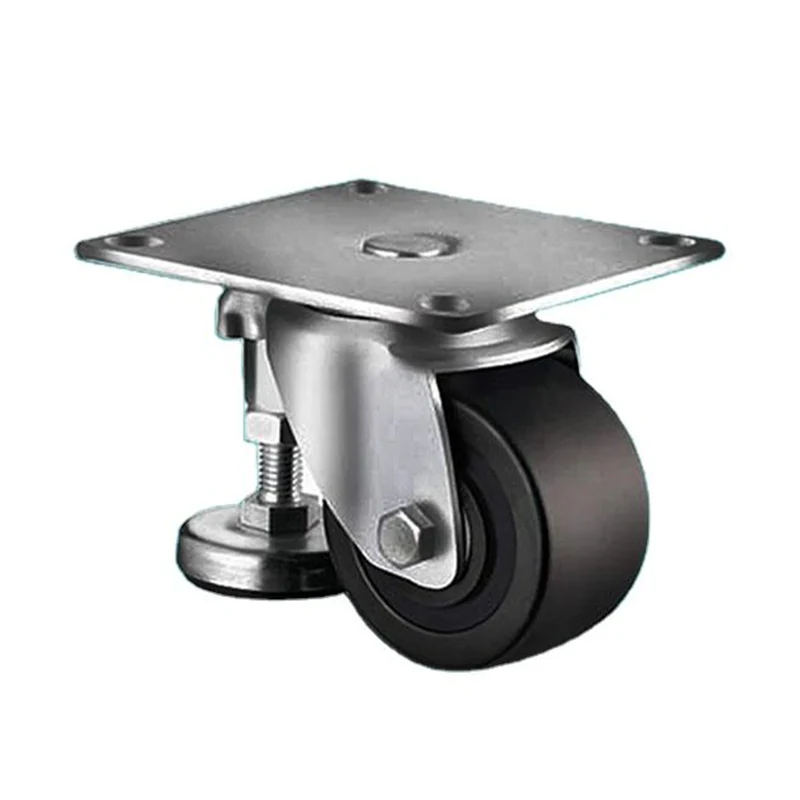How often should Heavy Duty Nylon Brake Caster Wheels be inspected for wheel wear, cracks, or deformation?
Regular inspections of Heavy Duty Nylon Brake Caster Wheels are crucial to ensuring the safe operation of heavy equipment. This is crucial for preventing accidents, ensuring personnel safety, and maintaining productivity. The frequency of inspections for wheel wear, cracks, or deformation should be determined based on the specific operating environment and workload.
For Heavy Duty Nylon Brake Caster Wheels subject to high-intensity, continuous operation—such as frequent transfer equipment in logistics warehouses or heavy-duty workstations on assembly lines—a quick visual inspection is recommended daily or before each shift. Operators should focus on checking for abnormal wear on the tire surface (such as uneven wear or variations in groove depth), obvious cracks (especially at the tire edges and at the spoke-hub connection), and any visible deformation or out-of-roundness of the wheel. Direct inspection of the Heavy Duty Nylon Brake Caster Wheel can help identify the most pressing damage.
Under normal moderate use (e.g., several times a week), or even in continuous use where loads and speeds are not extreme, a thorough weekly inspection is recommended. This inspection should go beyond daily inspections and include cleaning the wheel surface to more clearly inspect for fine cracks, manually rotating the wheel to feel the bearing for smoothness and any binding spots (which may indicate internal damage or deformation), and carefully pressing the tire surface to check for uniform elasticity and any localized collapse or softening. Also, check that the brake mechanism is properly reset to avoid abnormal forces that could indirectly cause wheel problems.
Regardless of frequency of use, a comprehensive, in-depth inspection performed by a professional maintenance technician should be scheduled at least quarterly. This inspection should not only check for wear, cracks, and deformation on the wheel itself, but also assess the overall fit and wear of the axle, bearings, and brake components. Heavy-duty Nylon Brake Caster Wheels operating in extreme environments (high and low temperatures, chemical corrosion, frequent impact, or sustained overloads) should require significantly more frequent inspections, perhaps monthly or even less frequently. Every time an inspection reveals abnormal wear, cracks (regardless of size), or any form of deformation (such as twisting, denting, expansion), it means that the wheel is damaged and must be immediately taken out of service and replaced. Operation with defects must be strictly prohibited to eliminate safety hazards in the bud.




